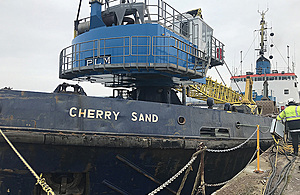Global Accessibility Awareness Day: Minister calls on the public sector to ensure digital services are accessible
- Government Digital Service marks Global Accessibility Awareness day with series of expert-led webinars
- Minister calls for action to ensure public-sector websites and mobile apps cater to the accessibility needs of all users ahead of accessibility regulations deadlines
- Public-sector websites published before 23 September 2018 must meet accessibility regulations by 23 September 2020
Today, Thursday 21 May, the Government Digital Service (GDS) marks the ninth annual Global Accessibility Awareness Day with a series of expert-led webinars and resources for public-sector organisations.
The resources and webinars will run throughout the day and provide additional guidance on improving the accessibility of online public services.
This activity comes just over four months before the compliance date for public-sector websites to meet online accessibility regulations.
By 23 September 2020, all public-sector organisations must align their websites with a set of accessibility criteria and publish a statement outlining how accessible they are.
The criteria includes alternative text to improve the accessibility of images, captions and audio descriptions for video content, and minimum colour contrast ratios for web pages and visual design.
As leaders in this space, GDS are monitoring and reporting on the accessibility of public-sector websites and mobile applications, and enforcing the requirement to publish an accessibility statement on behalf of the Minister for the Cabinet Office.
Minister of State for the Cabinet Office, Lord Agnew, said:
Today’s event provides a welcome reminder of the importance of digital accessibility in removing barriers that may otherwise prevent people from accessing online public services.
Public-sector organisations across the UK are already working to improve the accessibility of their websites ahead of this September’s compliance date.
However, efforts must continue to make certain the needs of those who may be digitally excluded due to temporary, situational or permanent disability are met. It is quite simply the right thing to do.
GDS’s webinar sessions coupled with the guidance available on GOV.UK will help to improve understanding of this important issue and tackle some of the common challenges for digital teams.
Kristina Barrick, Head of Scope’s Big Hack at disability equality charity Scope, said:
Inclusive design benefits everyone, but for disabled people, it can be the difference between someone being able to access a service or not. That’s why it’s vital that all public bodies make sure they are complying with the regulations. We’d also urge all businesses to take advantage of the resources available to get ahead of the curve, and make sure nobody is excluded from using their products or services.
Many of us are living our lives completely online at the moment, so it’s more important than ever that disabled people are not forgotten.
The recorded webinars will be published to the GDS YouTube channel after the event. Further guidance on this issue is available on the GOV.UK service manual and at GOV.UK/accessibility-regulations.


